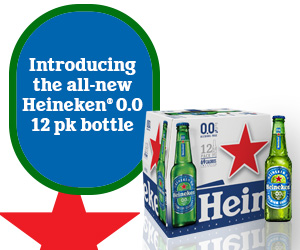
By Jerry Farrell, Jr.
Every week I get calls from prospective clients interested in buying a package store. The prospective clients want to know “what’s involved.” Is it as simple as “buying the license”?
In Connecticut, one cannot “buy the license” per se. If there is an existing package store for sale, the purchaser has two ways of purchasing it. First of all, the purchaser can enter into a contract with the seller to buy all interest in the backer corporation, which includes all assets, including the package store license. Alternatively, the purchaser can enter into a contract with the seller to purchase distinct assets — such as the fixtures and liquor inventory, but not the corporation itself — while applying for a new package store license.
If the backer corporation is bought outright, you buy not only its assets but all its liabilities, some of which can be ascertained, but not all. Sometimes the purchaser has worked in the existing business, as an employee, and feels knowledgeable about what the liabilities might be — they know if the sales tax has been paid, or if the wholesalers have not been paid. Other purchasers will not want to buy the backer corporation, but instead purchase the fixtures and inventory, create a new corporation and apply for a new package store license.
In either circumstance, a contract is needed, committing to writing what the buyer and seller have agreed to. Many items need to be dealt with in the contract.
• How will the liquor inventory, which changes daily, be valued on the day of closing?
• Will the buyer be given access to the financial records of the business prior to closing?
• Are there liens on any fixtures, which need to be paid at closing?
• If the space is rented from a third party, can that lease be assumed by the buyer?
• How many years remain on the lease?
• Will the buyer have to enter into a personal guarantee of the lease with the landlord?
The contract will also describe if the purchaser has to pay all of the purchase cost on the day of closing, or if the seller might be willing to enter into a promissory note to get the balance of money over time. During the closing process, the purchaser’s attorney will verify with the state Department of Revenue Services that all sales tax has been paid, and contact wholesalers for confirmation their bills are current.
If the backer corporation is being purchased, the buyer and seller have to seek pre-approval from the Liquor Control Commission, and also need to file to change the permittee. If instead, a new license is sought, a license application is filed, along with posting a placard at the location and publishing the legal notice twice. Most purchasers don’t want to have a closing, and exchange funds, based on a provisional license, and will wait for a permanent license to be issued.
Throughout the process, the right legal documents need to be created — initially the sales contract and likely a lease. Upon approval from Liquor Control, a Bill of Sale, potentially a Promissory Note, and other legal documents will be needed.
Every transaction is different because the buyer and seller have different needs and expectations. The job of the lawyer is to work with the parties to make the transaction happen, giving his or her client advice on the legal and business ramifications of the differing choices that will need to be made before the deal is done.
Jerry Farrell, Jr. served as Chairman of the Connecticut Liquor Control Commission from 2006 to 2011. Today, he is an attorney in private practice, focusing on liquor licensing law. He can be reached at jerry@ctliquorlaw.com. This column is not intended to be legal advice; consult an attorney for answers to your specific questions and situation.











